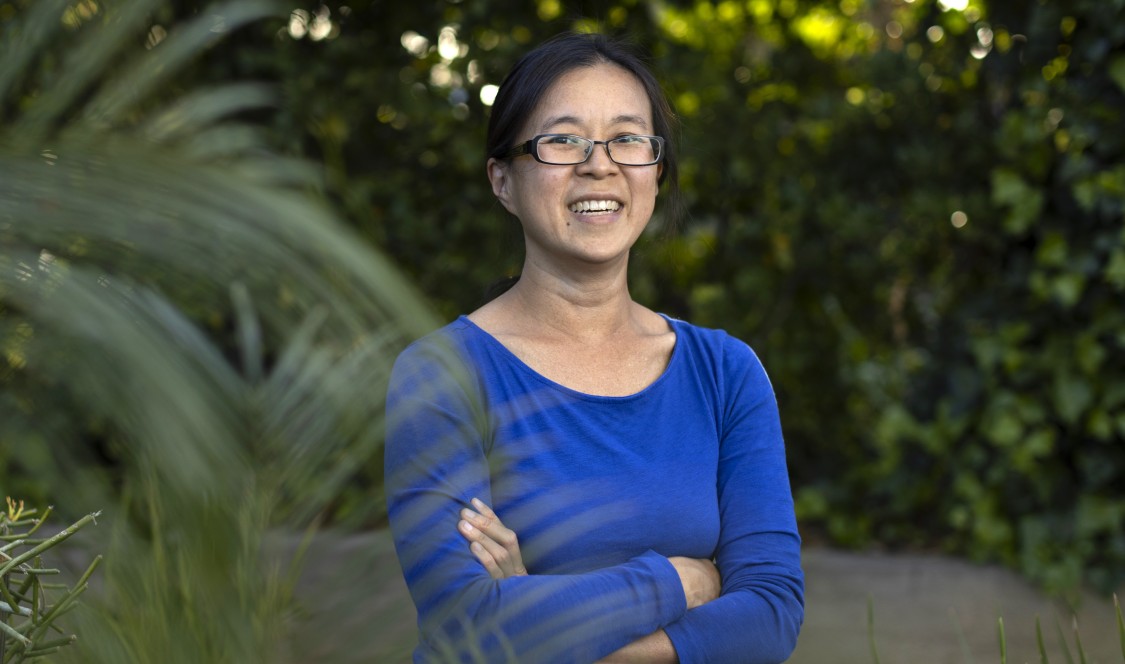The Simons Foundation has awarded CMC Prof. Helen Wong a 2021 Simons Fellowship in Mathematics, making her one of two liberal arts college faculty to receive the highly prestigious fellowship in nearly a decade, and this year’s only researcher from a liberal arts college.
“I’m so excited to receive this award and grateful for the support I’ve received from CMC,” said Wong, a mathematics professor. “CMC really stands out among liberal arts colleges in the way it values and encourages faculty research at the highest level, and truly believes that faculty research enhances the way we teach our students. Not only can we bring new ideas and cutting-edge techniques from our research to the classroom, we can involve our students as collaborators in our research projects, too.”
The Simons Foundation awards approximately 40 fellowships annually to extend faculty research sabbaticals for a full year to focus on research.
Wong will use her fellowship year to advance her work in topology, which examines the characteristics of an object that are preserved after continuous changes to its original structure. On an intuitive level, topology regards objects as being made from soft rubber, which can be stretched, but can’t break or cut.
A fundamental question is working out which objects can be transformed into which, Wong said. The often-quoted example, she added: To a topologist, a coffee cup and a donut are the same thing, but the problems get more complicated very quickly, especially in higher dimensions.
One of Wong’s current projects explores newly discovered connections between topology, hyperbolic geometry, and quantum field theory. Wong’s theoretical work has been used to explain several different kinds of physical phenomena: from large-scale questions about the shape of the known universe to the smallest models of quantum computers constructed from quasi-particles in low temperatures.
In addition, Wong will work on a second project that uses topological characteristics to analyze changes in a protein’s structure as the protein is being formed. Proteins are complicated molecules that can tie themselves in knots and other topological structures, which affect their biochemical functionality. For example, topological characteristics of proteins may be involved in neurodegenerative diseases like Alzheimer’s or Parkinson’s, Wong said. This second project involves a collaboration between theoretical mathematicians and lab scientists.
“I am looking forward to the extra time and freedom to focus on my research after such a crazy year,” Wong said. “My top priority will be to finish some research papers, including one about knotted proteins that I’ve been working on with a few students.”
In addition to the Simons Fellowship, Wong was the recipient of a grant received from the National Science Foundation (NSF) in 2019. With NSF support, Wong has been offering research and training to students in the mathematical sciences. She currently teaches a new seminar course on quantum computation at CMC and is eager to provide her students with the opportunity to engage in research that advances the theories they are learning in the classroom.

